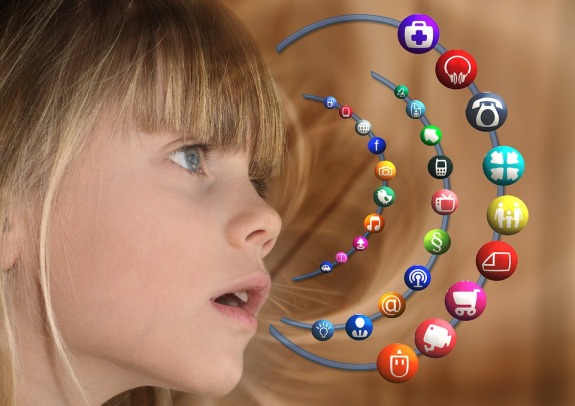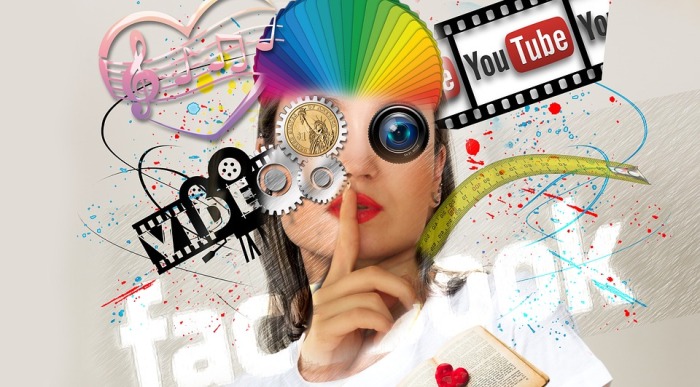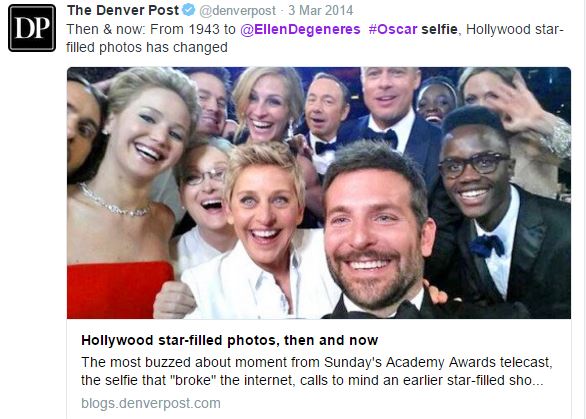Attempted my first podcast version of my blog:
Are you ready for this week’s bus trip? Debate number two of our ECI 830 class featured the controversial question,
Is Social Media ruining childhood?
 Geralt at Pixabay CC0 Public Domain
Geralt at Pixabay CC0 Public Domain
Now here’s the power of a learning network and reflection… just when you think you know where you stand and that as a parent and an educator you are doing the best you can … you jump into a debate about social media.
Is it ruining childhood?
That seems to be a pretty extreme statement at first.
Is social media childhood?
It’s certainty part of it is…
I think we have to acknowledge as Rick Lavoie shared in a workshop I attended, that we need to recognize the childhood our students and children are experiencing is nothing like the childhood we experienced. He cautioned us to think about how we respond to students…
“I know what it’s like to be a kid”

Unsplash @ Pixabay – CC0 Public Domain
… he reminded us we don’t. Our environment has changed significantly. Now I realize that statement begins to date me a bit and that’s okay. For the majority of educators, I would venture a guess that we didn’t grow up with social media, mobile devices, the internet or computers.
In fact, I remember when our family got it’s first computer…. wait before that I remember  the Commodore 64 computer that used to be wheeled around on a cart between the classrooms and when it was your turn you were allowed to play on it for a few minutes… concentration or maybe later on Oregon Trail. Our family computer featured a green monochrome monitor and a dot matrix printer that we could use to type up our school assignments. Then later in my high school years it was the cell phone… it came in a bag… it was only for emergencies or to take with you in the tractor so you could call home when you had finished cultivating the field and needed to be picked up. It cost a lot for the convenience of mobility.
the Commodore 64 computer that used to be wheeled around on a cart between the classrooms and when it was your turn you were allowed to play on it for a few minutes… concentration or maybe later on Oregon Trail. Our family computer featured a green monochrome monitor and a dot matrix printer that we could use to type up our school assignments. Then later in my high school years it was the cell phone… it came in a bag… it was only for emergencies or to take with you in the tractor so you could call home when you had finished cultivating the field and needed to be picked up. It cost a lot for the convenience of mobility.
(Image from Cstibi @Pixabay – CC0 Public Domain)
Social media involved stopping at the local Turbo gas station to check in with your friends so you could figure out where everyone was on a Friday night. Photos generally only existed if people actually developed the film and there was a good chance the picture may not have turned out, the biggest risk there was in a small town … you had to drop off your film at a local store to be developed and someone’s Mom might work there.
Flash forward to today’s school… we appear to be more connected through all of our devices than ever before, but are we authentically connected? Perhaps today’s bus trip is more of a boat ride in the social media stream. Kudos to both teams for sharing thoughtful points on the impacts of social media. It’s really made me think about the impacts of social media not just on our children but on adults as well. After all, today’s adults are modelling the behavior for our children and buying them the devices.
As it seems each time we dig into a thoughtfully crafted ECI 830 debate statement, I find myself in the boat looking back and forth between the beautiful blue waters with the sunny shore in the distance and the dark grey waters of the open ocean where the waves exist but don’t always show themselves.


Images from Unsplash & Stocksnap @ Pixabay – CC0 Public Domain
Now I’m a fan of the rock the boat theory. Yes sometimes when you work with people you have to go on a metaphorical boat trip (a real life rocking boat would stress me out way too much). Sometimes you have to ask questions or suggest strategies that may rock the boat a bit because the only way to see the other side is to catch a wave that scares you but let’s you see what’s out there.

Image from geralt @ Pixabay – CC0 Public Domain
I think the moral of this week’s debate is social media is not going away and we have to find a way to support our children and build their toolbox of strategies before they get to far out on the boat and drift away.
In “Social Media Affects Child Mental Health Through Increased Stress, Sleep Derpivation, Cyberbullying, Experts Say” George Bowden wrote about the risks of social media use by children. There are many sharks in the waters for our children to face. If they want to be connected for FOMO (fear of missing out), they are going to go out in a boat that’s ill equipped to support them during stormy times. Bowden in fact warned of how ” a potent mix of cyberbullying, increased anxiety, stress and sleep deprivation are increasingly linked to mental illness in children.”
 Image from shahart @Pixabay – CC0 Public Domain
Image from shahart @Pixabay – CC0 Public Domain
Bowden shared the story of Rebecca who explained that not only was she bullied at school, it followed her home because of social media. In our desire to be connected we continue to turn to the platform that helps us connect. The problem arises when the ratio of positive to negative interaction tips into a extreme range and our face to face and online life reinforce the same negative attention. It causes the mob mentality of a feeding frenzy. Now your boat is really more like a shark cage and you are holding dinner. No matter where you turn someone is rushing in to take a piece out of you. It’s exhausting and scary. Scary to think that even in the safety of our homes our children are still subject to attack.
In the Tipping Point, Malcolm Gladwell reflected on the broken windows effect. “If a window is broken and left unrepaired, people walking by will conclude that no one cares and no one is in charge.” Gladwell explained in several examples how small changes in the environment can tip larger epidemics. If your boat trip drifts into some murkier waters and people treat each other negatively and that’s seen as okay, it certainly opens the flood gates for some larger predators to swim through. I would guess that he majority of online bystanders that join the bullying mob rationalize from the context that their behavior will help them fit in. The individuals themselves would likely be able to distinguish right from wrong quite distinctly. It’s the context that causes the individual to tip.
In a Social Life, Kerith Lemon questioned whether or not our online life is “a carefully curated brand.”
While it’s important to think before you post, just how much are we consciously branding our online persona into the life we think we should have versus the one we actually live. It’s really about the balance. “This presents an unprecedented paradox. With all the powerful social technologies at our fingertips, we are more connected – and potentially more disconnected – than ever before” (Tardanico, 2012)
Susan Tardanico emphasized,
So just how do you increase the know, like and trust factor of online interactions when it’s a visual yet text based interaction? It’s a conversation I’ve had with Carla Gradin, body language trainer, wardrobe stylist and creator of the Killer Confidence Course. How you take pictures and frame the video matters. Body language truly does impact how we interact with others. In fact, it affects your primal brain causing you to respond in ways you don’t even consciously think about.
Feel like you’re in a rubber dingy floating out to see as it’s getting dark? Don’t fear, social media can also have a deeply positive effect on your emotional state. The UCLA Center Mental Health in Schools noted 6 explicit benefits of social networking for peer relationships including building a sense of community for those more isolated, creating closer bonds and building positive relationships. Caroline Knorr explained social media can help provide genuine support, enable them to express themselves, while offering a sense of belonging (5 Reasons You Don’t Need to Worry About Kids and Social Media, 2015)
So perhaps we’re not alone in the boat, maybe we are part of a flotilla which is part of a larger fleet. For as many sharks and predators that swim in the ocean there are billions of plankton that form the foundation of the food web. Perhaps we are surrounded by the good we just have to be in the right context to see it?

Image from geralt @Pixabay – CC0 Public Domain
As Jan Rezab explained Facebook, Twitter and Snapchat are just platforms. It’s the people that make the difference and what a difference one person can make in our connected world. Rezab shared the Arab springs example, along with how the Turkish government blocked Twitter and Facebook. To that he added how in Turkey, more people posted to Twitter when it was banned than ever before. He reminded us how now more than ever individuals have a voice that can be heard and how together we can impact change at a government or organizational level.
The power of amplification.
What social media really did was give us the power to connect with others on a larger scale. Think about events organized on Facebook and the ripple effect it has on the number of people involved.
Rezab asked instead of retweeting the famous Oscar Selfie,

Screenshot from Twitter
why not retweet things that can change our world. As Bowden quoted, “We need to realize young people are on social media and that’s here to stay,” Russell says. “Now, it’s about giving them the skills to manage their online lives and the resilience to bounce back.”
And to that I would add it’s not just about giving our children the skills and tools to be resilient online it’s about helping us as parents learn how to help our children. So when the boat trip gets a little rough, our children know that we are here to help. And when the time comes for them to leave the safe harbor and sail out into the ocean, we know they are prepared with the most resilient tool box possible and maybe a phone to call home.
Here’s a quick video that we shared with our students during our Social Media Cafes that really sums up the impact of cyberbullying.
Thanks to Logan, Amy and Carter for reminding us of the challenges of social media and to Ellen and Elizabeth who noted that there are many positives as well.
- This week Erin wrote, “Children who engage with social media are both consumers and producers of content. They have the power to create and share words, and we know how powerful words can be. We live in a world where everyone can create and consume media, do our students fully understand the power of our words in the absence of non-verbal communication. Words on their own are subject to many more misinterpretations that words said by an individual. Now this is just my observation, but words are the first choice of our very young internet users. Video is. Students know how to voice search before they can read. Content comes in many forms.
- Heather examined the topic through our nostalgic reflective eyes and questions just how true is our recollection of our childhood? I wonder how true out memories are… just how does our story affect how we remember the stories of our lives. She also noted that we often hear more bad than good these days. As now the news comes to us non stop. In the past, you had to actually turn on the TV and watch the 6 o’clock news or stay up late enough to catch the nightly new with Lloyd Robertson or dare I say Knowlton Nash…
- “Is the box really just a box now, because there is no one left to play with it as we all sit on our devices trolling social media?” Lisa raises a very interesting point in her reflection on Social Media and Childhood.
- Danielle does an excellent job of summarizing key things that we can all do to make a difference in our children’s social media experience. Stand up and step into the conversation, the only people that can make the difference are the ones that engage in the conversation.
- Kyle wrote – Social Meida Acceptance Necessary for Parents – it’s happening whether you like it or not and stepping into the conversation matters.
I really like your sound cloud. It was a very nice change. I think your idea of not being alone in your boat is important. Social media is here to say as you suggested and each and every child is dealing with it. Having even one student step up and stand against something they see online will help foster a growing change. We can help teach students to post things that matter and can make a difference. We should model what is positive and perhaps give them opportunity in a safe space like school to make posts that are positive.
LikeLiked by 1 person
Well said. Helping students to post things that matter can help turn the tides and tip things for the good.
LikeLike
Love the audio version! I’ve been thinking of doing this as well, but haven’t got all the “tech skills” to actually pull it off! Great use of varied technology! I enjoyed your “smooth sailing or a perfect storm” analogy! Thanks for a creative post!
LikeLiked by 1 person
Very neat writing!!!! You put so much good thought and logic in your post!
LikeLiked by 1 person
Thank you Haiming!
LikeLike
I agree that we, as teachers, need to model responsible digital literacy and digital citizenship. Thank you for reminding us of this, and raising several other thoughtful points, such as the power of amplification. A VERY well rounded blog post about this debate topic! Well done!
LikeLike
Thanks Heather! I think part of it is that as teachers we have to become comfortable modelling digital literacy and citizenship. It’s learning how to step in and talk to the students even when we don’t have all the answers and that’s okay.
LikeLike
Great thoughts on what true connections mean in an increasingly digital world. It makes me wonder what communication between humans will look like in 50 years? Important to continue to foster meaningful connections between teacher and student.
LikeLiked by 1 person
Very true! Growing up I could never have imagined the devices we have today, so I can only imagine what the world will be like in 50 years… or what will be left of our online legacy.
LikeLike
Great idea on the podcast, Stephanie! Love the idea and the creativity involved. I appreciate how you brought up the fact that we really don’t know what it’s like to be a kid now. I don’t feel as though I am that old, really, and yet I always say the same thing, that I know what it was like to be a kid, when really, I don’t. Childhood has evolved so much since I was even a kid that they are living in completely different circumstances now than we were. Something to think about, that is for sure!
Thanks for the great post! A lot to consider and reflect upon this week.
LikeLiked by 1 person
Thank-you 🙂
LikeLike